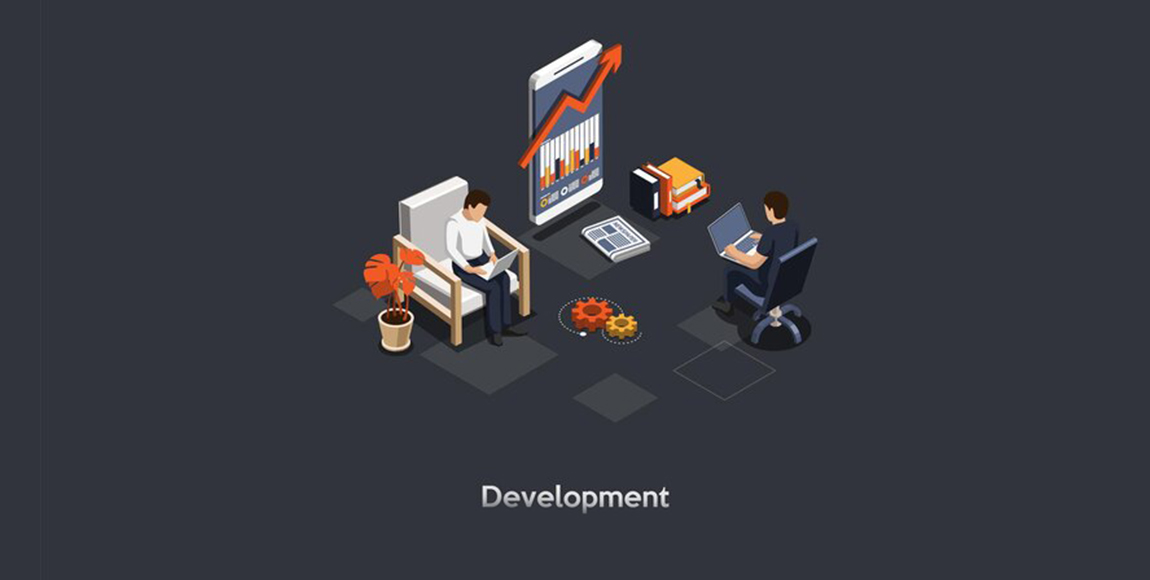
Huge swaths of the population moved away from farming into factories due to the technological shifts that powered the first, second, and third industrial revolutions throughout the eighteenth and nineteenth centuries. Mass migration and social dislocation caused years of upheaval, which required time and significant governmental interventions to manage.
The technological advancements of our day have resulted in a change currently taking place in the global economy and the workforce participating in it. This shift is of equal or larger proportion than previous ones. Through digitization, vast volumes of economic and social activity are being converted into formats that are readable by machines and can be evaluated and re-imagined. Many applications of artificial intelligence, ranging from machine learning to predictive analytics, are increasingly used in business today.
A significant portion of these shifts holds a great deal of promise. However, there is a real possibility that the benefits of technological progress may only accrue to some sectors of the economy and certain cultures and that these gains would not translate into a general improvement in prosperity and well-being.
In the future of employment, large segments of the labor force will transition into occupations and jobs with lower productivity and pay levels. It is not too soon to start mobilizing now to envisage what the future of work will be like and to establish policies and methods that might maximize the benefits of this future. This procedure starts with grasping the dynamics that are already taking place.
Multiple Consequences Caused by Technology at Once
The improvements in technology that are being made today are having a significant impact on the future of work in three important ways: by scaling and speeding up the capabilities of humans, by replacing human labor with that of machines, and by enabling ways to access and supply labor.
Increasing human capabilities while simultaneously scaling them up. Since the invention of the Gutenberg press, technological advancement has been increasing the capabilities of humans. Many modern applications of technology can increase productivity; nonetheless, the following two examples show a representative breadth of the modern potential to modify the work landscape.
The replacement of human labor with mechanical labor
Equipment operators, particularly drivers of vehicles, jobs that involve basic cognitive abilities such as data entry, and a variety of administrative positions all fall under the category of high-risk occupations. Jobs that need greater cognitive capacity, such as creativity, cross-disciplinary skills, technical talents, and social or emotional connections, are located on the low-risk end of the continuum.
These tendencies do not necessarily indicate a dismal future for the job market, economy, or society. When there is a shortage of labor or some other source of economic friction, automation may be viewed as a welcome solution.
Innovative approaches to gaining access to and supplying labor
As more jobs in the traditional economy are eliminated by automation, more employees are turning to independent labor that can be found on internet platforms as an alternative to or in addition to traditional employment. The expansion of the online platform economy has made it easier for employers and employees, suppliers and customers, and even suppliers and businesses to locate one another and transact commerce involving the exchange of labor and goods.
To summarize, it does not appear that working on an online platform can completely displace more conventional sources of income; however, it is altering the nature of employment and the salaries earned by an increasing number of individuals.
For a future of employment accessible to the majority of people and has a broad base of participation, there will need to be a variety of purposeful interventions on the part of the government, the business sector, and the civic sector. For more individuals to participate in new endeavours with a higher value, society needs to rededicate itself to the task of workforce preparation.
This is crucial not only for the generations to come but also for the employees who are already employed and may be impacted by changes in the future. Both new financial investments and shifts in how we think about when education “ends” will need to be made to close the present skills gap. The old PK–12 basic education system will need to be modified, as will our conceptions of when education “ends”.
Society must adopt a view of lifelong learning and retraining throughout a person’s entire lifespan, with an emphasis on more demand-driven and vocational training, a greater focus on skills based on working in teams, and integration across functional and disciplinary boundaries.
Suppose they are not carried out in tandem with a comprehensive set of economic and social policies. In that case, these educational investments will have a limited impact, even though they are both essential and extremely significant.
This may include taking a fresh look at various economic levers, such as modifying the tax system, raising the minimum wage, revamping unemployment and wage insurance, developing more efficient savings programs, and modifying compensation and tax structures. In addition to income, there may be a need at the community level for more action on the cost of and availability of appropriate housing and health care.
About Us:
Highbar Technocrat Limited, an SAP Gold Partner, helps clients in India and abroad to help them manage change. Highbar adopts an integrated approach to help you rethink your business with high agility and efficiency. At Highbar, we see disruption as an opportunity to help clients transform their businesses with granular solutions. Handling change requires confidence in decision-making, and Highbar enables this confidence in clients.
Our forte offers digitally integrated solutions for the Infrastructure, EC&O, Real Estate, Mining, Oil & Gas, Power, Smart Cities, Government, Manufacturing sectors, and much more. Our domain expertise combined with the ERP helps clients become intelligent enterprises and highly receptive to customers’ needs. With our strategic alliances, we help clients transform business operations, leverage data, and integrate sustainability to match the speed of change.
For further information, don’t hesitate to contact us by e-mail at enquiry@highbartech.com or by telephone at +91 89767 11399.




